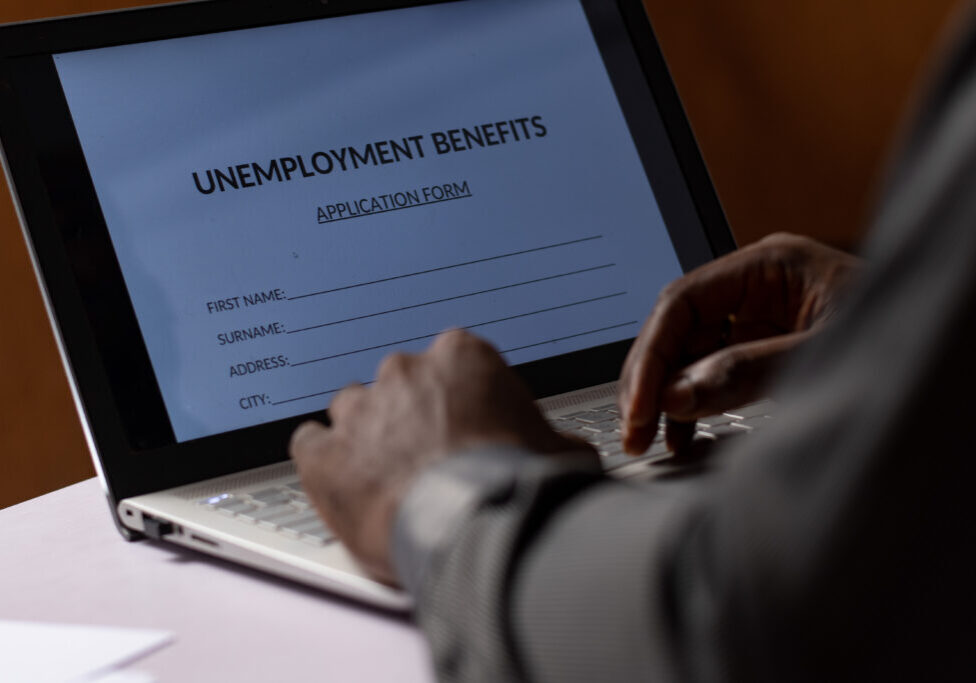People who lose their jobs through no fault of their own would face more barriers to obtaining unemployment insurance under legislation that cleared the Louisiana Senate on Tuesday. Rep. Troy Hebert’s House Bill 153 would increase the number of “work search” actions people must take, such as attending interviews and filling out job applications, in order to receive benefits. The Times-Picayune | Baton Rouge Advocate’s Meghan Friedmann reports:
Currently, the Louisiana Workforce Commission requires those collecting unemployment to perform three “work search actions” each week. House Bill 153, by state Rep. Troy Hebert, R-Lafayette, increases that requirement to five and puts it into state statute. A work search action could include filling out a job application, interviewing for a job, attending job fairs, attending networking events or doing mock interviews. Proponents of the bill said it would help get more Louisianans back into the workforce. Critics said it would set overly burdensome requirements, especially for those in rural areas with limited job opportunities.
Louisiana’s unemployment benefits are among the most meager in the country. Last year, lawmakers reduced the amount of time people can collect benefits – from 26 weeks to as little as 12 weeks. HB 153 heads to Gov. Jeff Landry’s desk for his signature or veto.
Issues to watch in the federal tax debate
The budget reconciliation bill moving through Congress poses serious issues for state tax policy and state budgets. The Institute on Taxation and Economic Policy’s team breaks down five issues for state leaders to watch during the ongoing federal tax debate, including ways the House-passed bill uses tax avoidance to fuel school privatization:
That’s because private school voucher donors could avoid capital gains tax on their gifts of corporate stock, essentially making a contribution to a voucher group more profitable than a stock sale to a regular buyer. The upshot is that the bill facilitates capital gains tax avoidance as a way of motivating wealthy families to act as middlemen in moving public funds into private schools. This would reduce both federal and state revenues through reductions in reported capital gains income.
WIC under threat
The federal Special Supplemental Nutrition Program for Women, Infants, and Children (WIC) finances healthy foods and other support for pregnant and postpartum women and their children. But funding reductions for the program included in President Donald Trump’s 2026 budget proposal would take away more than $19 million in fruit and vegetable benefits from 70,000 Louisianans. That’s the conclusion of a new analysis by Elisabet Eppes of the Center on Budget and Policy Priorities:
The proposed cut would directly undermine the Administration’s stated goal of improving children’s health and reducing childhood chronic disease by depriving young children of essential nutrients during a critical developmental window, which could have negative long-term health consequences. … The proposal also runs counter to the President’s promise to lower families’ food costs. If WIC benefits are reduced, families with young children and low incomes will have to spend more on groceries to provide their children with the same amount of fruits and vegetables, at a time when grocery prices are expected to rise.
K-3 reading improves in Louisiana
The number of Louisiana kindergarteners reading at or above grade level doubled during the 2024-25 school year, which state education leaders are largely attributing to new literacy standards. The new approach uses the so-called “science of reading” to focus more on letters and sounds than relying on context clues. The Lens’ Marta Jewson explains:
Last fall, only 28% of Louisiana kindergarteners read at or above grade level. But as they finished the year, this spring, 61% of kindergarteners reached that mark. The trends in kindergarten were also seen in higher grades. In the fall of 2024, just over 50% of Louisiana students in 1st, 2nd, and 3rd grade were reading at or above their respective reading levels. All grew this year, with the largest growth seen in first grade, where 69% of students were reading at or above grade level by end of year.
Number of the Day
$1.25 billion – Projected total economic output for Louisiana from New Orleans’ hosting of the 2025 Super Bowl. (Source: LSU E.J. Ourso College of Business)
